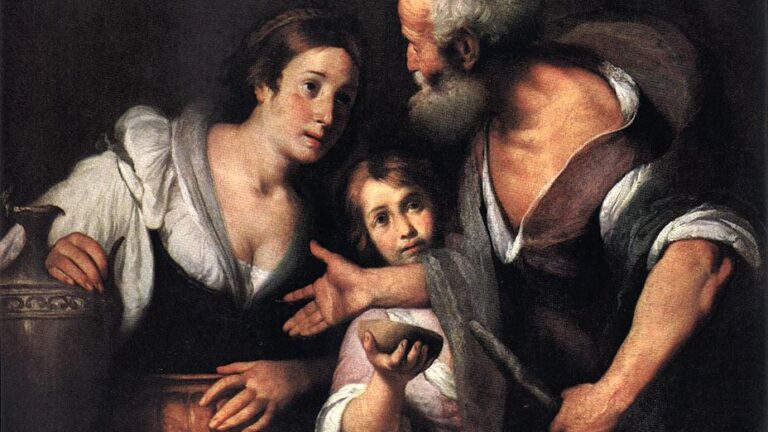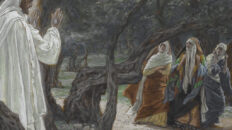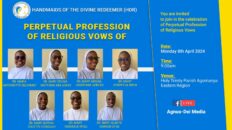THEME: RECEIVING A PROPHET’S REWARD
READINGS: 2 Kings 4:8-11,14-16 / Romans 6:3-4,8-11 / Matthew 10:37-42
13th Sunday in Ordinary Time
Our Lord Jesus Christ says that, ‘He who receives a prophet because he is a prophet shall receive a prophet’s reward’ (Matt. 10:41). Hence, the theme of this homily, ‘Receiving a Prophet’s Reward’.
We need to identify who a prophet is, so that we can show him/her that kindness which God rewards. So, who is a prophet? This question is very important, especially, in our day when many people parade themselves as God’s prophets, even though they are not. We find a clear answer to who a prophet is in the Book of Deuteronomy. It reads: ‘I [LORD God] will raise up for them a prophet like you from among their own people; I will put my words in the mouth of the prophet, who shall speak to them everything that I command. ….But any prophet who speaks in the name of other gods, or who presumes to speak in my name a word that I have not commanded the prophet to speak—that prophet shall die.” You may say to yourself, “How can we recognize a word that the Lord has not spoken?” If a prophet speaks in the name of the Lord but the thing does not take place or prove true, it is a word that the Lord has not spoken. The prophet has spoken it presumptuously; do not be frightened by it. (Deut. 18:18-22; NRSV).
From the above passage, a prophet of God is someone:
- Who is called by God – to be a prophet is a vocation and not a profession that one takes up by his//her own initiative
- Who receives God’s message to deliver to His people; the prophet, therefore, is attentive to God’s message
- Who proclaims God’s message to His people
- Whose proclamation comes to pass.
Beloved, if we are not sure if someone has been called to be a prophet and if we are not sure if he/she has received a message from God, we can still detect whether he/she is a true or false prophet by their fruits:
- Firstly, does his/her lifestyle correspond with the Word of God
- Secondly, does his/her message correspond with or contradict the Word of God
- Thirdly, does what he/she proclaim as God’s message come into effect?
In the man Elijah, the widow of Zarephath saw a true prophet of God and so she gave him water and a cake (part of her last meal), and she was rewarded greatly: her jar of flour and jug of oil never got emptied until it rained again (1 Kings 17:7-16). Similarly, in the man Elisha, the barren woman of Shunem saw a true prophet of God and so she provided him with food and shelter, and she was rewarded with a child (2 Kings 4:8-17).
In both cases, what Elijah and Elisha said came to pass, for they were true prophets. That is, the two women were rewarded or blessed by God for their kindness to His prophets. Similarly, beloved, when we are kind to the true prophets of God, He will bless us.
Beloved, by extension, when we contribute to the spread of the Good News of salvation by helping other servants of God, He will surely bless us. Thus, Jesus assures us that those who show kindness to righteous persons and His own disciples will be blessed by God: ‘Whoever welcomes you welcomes me, and whoever welcomes me welcomes the one who sent me. … whoever welcomes a righteous person in the name of a righteous person will receive the reward of the righteous; and whoever gives even a cup of cold water to one of these little ones in the name of a disciple—truly I tell you, none of these will lose their reward’ (Matt. 10:40-42).
Finally, beloved, let us discern and know the true prophets and true servants of God in general, and then support their work of spreading the Gospel of salvation. Our reward, Jesus assures, will certainly be received. Amen!
By Very Rev. Fr. John Louis








